AI computing demand surges, Arm refuses to be just the 'king of mobile chips'
![]() 11/27 2024
11/27 2024
![]() 613
613
On November 21, Arm's annual technology conference, Arm Tech Symposia, successfully concluded in Shenzhen. As the final stop of Arm's five-city tour in Asia-Pacific, Leitech was invited to attend the conference and had a face-to-face exchange with James McNiven, Vice President of Product Management at Arm's Terminal Business Unit, about Arm's current market progress and future plans.
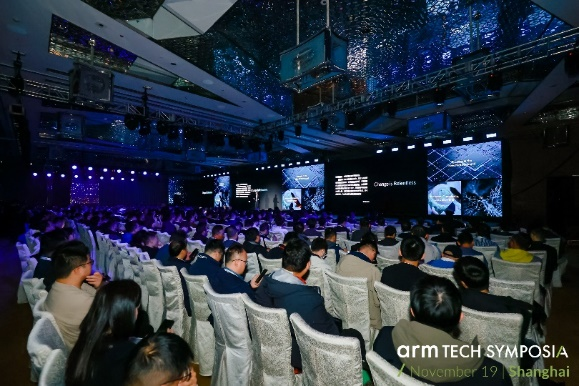
Source: arm
Arm's trinity view of AI: hardware, software, and ecosystem
Themed "Let's Collaborate to Reshape the Future," the conference attracted over 3,500 developers, engineers, and industry insiders to discuss AI trends and cutting-edge innovations. Additionally, Arm showcased several new technologies and applications with its ecosystem partners. In the exhibition area, the latest technologies from companies like Samsung were on display, including Arm's Kleidi technology showcase. This new software library allows developers to easily optimize AI applications, significantly enhancing their operational efficiency.
In live demonstrations, hardware showed over 50% improvement in inference performance after optimization with the Kleidi software, which is compatible with all Arm-architecture hardware meeting performance requirements. According to on-site staff, they are collaborating with partners like Alibaba to explore Kleidi's application in data centers, potentially reducing computational costs significantly and facilitating the popularization of AI applications.
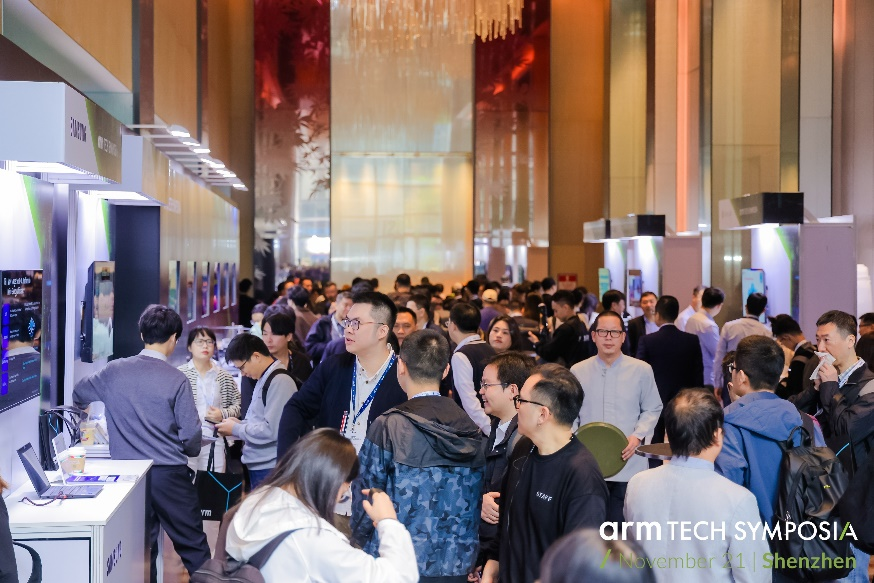
Source: arm
At the Media Tech Day held in Beijing earlier, Arm introduced in detail two major updates for the terminal market released this year: Arm Terminal CSS and Arm Kleidi software. A few months later, we have witnessed the impact of these two technologies on the market, with numerous AI applications being born and downloaded by users, benefiting over 20 million developers in the Arm ecosystem.
This demonstrates Arm's transformation in the AI era. As a top player in the computing platform industry, Arm previously primarily communicated with downstream chip design vendors like Qualcomm, Apple, and MediaTek. With the widespread adoption of AI services and massive mobile AI demand, Arm has successfully transitioned by leveraging technical solutions. We can see that Arm has recently started paying more attention to developers and collaborating with multiple terminal vendors.
Recently, vivo and Arm officially unveiled a joint laboratory, deepening cooperation in hardware, ecosystem, software, and other aspects. One of their achievements is the well-known Sapphire chip technology stack. Through collaboration with Arm, vivo achieved system optimization based on the chip level, further enhancing mobile phone energy efficiency, making the system smoother and adaptable to more AI functions in the future.
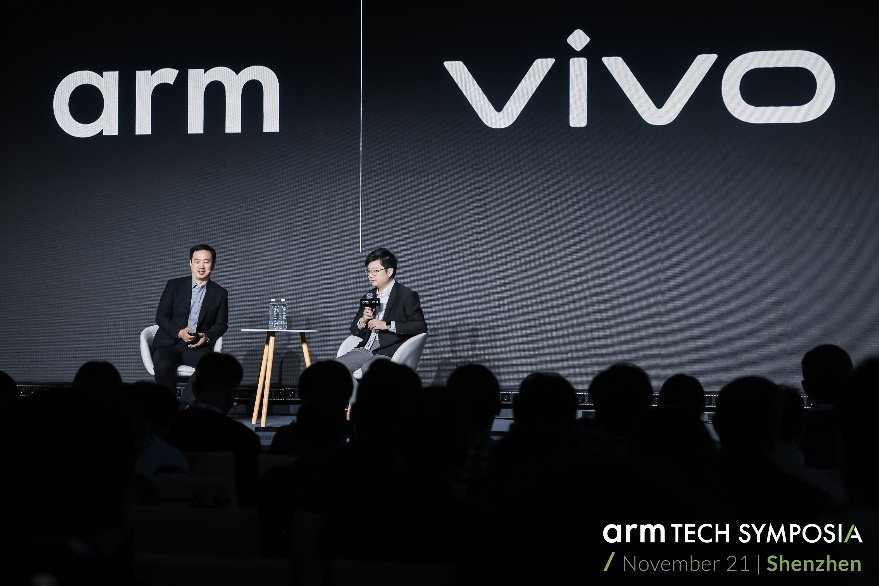
Source: arm
Besides collaborating with mobile phone manufacturers, Arm officially announced a deep partnership with Tencent at the conference, integrating Kleidi AI technology into Tencent's in-house developed Angel machine learning framework, further enhancing the inference performance and efficiency of mobile AI services.
Simultaneously, Arm collaborates with internet companies like Google and Meta, providing broader support and optimization for their AI models, assisting enterprises in deploying AI to more applications and terminals. Among the applications listed by Arm, you can easily find commonly used apps and systems. As the core of the current mobile ecosystem, Arm is indeed one of the most likely vendors to integrate various smart ecosystems from the ground up.
Perhaps it's not entirely accurate to say integration; a more precise term would be "win-win cooperation." In fact, Arm is now further expanding its influence in various fields through collaborations, no longer limited to the semiconductor industry.
Arm believes that AI will be one of the most significant technological changes of our time, with great potential to become one of humanity's most important technologies. However, to popularize AI in more fields and among more users, hardware, software, and ecosystem must advance together. It's challenging for any single party to accelerate the AI process alone. Therefore, Arm aims to accelerate the AI ecosystem by creating hardware more suitable for AI and software more aligned with the AI era, namely the previously released Armv9 architecture and Kleidi.
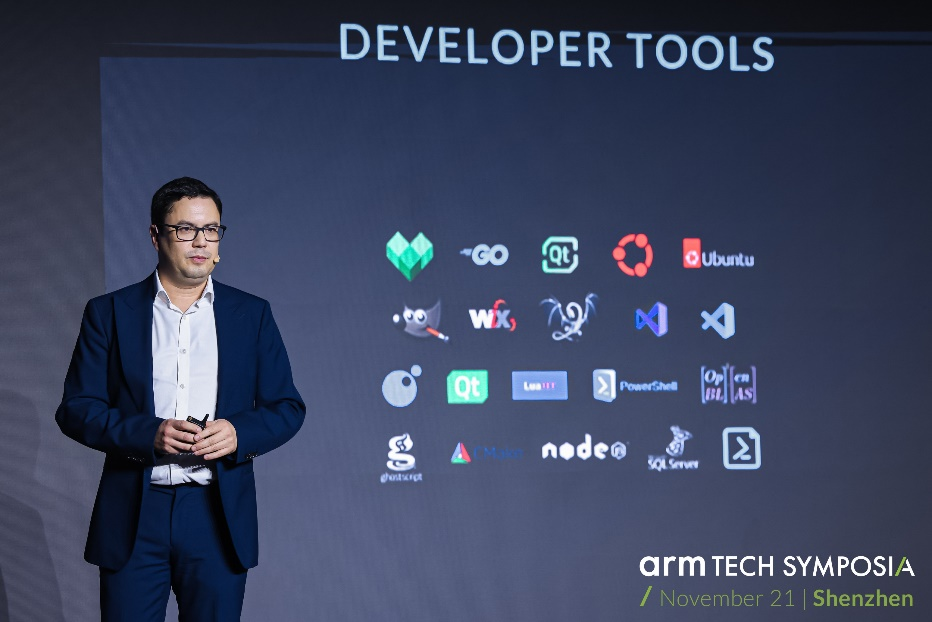
Source: arm
Building on hardware and ecosystem, Arm also hopes to enable more devices to support AI, even setting a goal: to equip 100 billion Arm-driven devices with AI capabilities by 2025. Although over 300 billion chips based on the Arm architecture have been shipped to date, achieving this ambitious vision requires in-depth optimization of large AI models and applications to enable older hardware to support new AI applications.
Can Arm achieve this grand goal? Let's wait and see.
James McNiven: Arm aims to be the cornerstone of the AI era
On the day of the technology conference, Leitech was invited to a small-scale closed-door media briefing, where James McNiven, Vice President of Product Management at Arm's Terminal Business Unit, provided a deeper insight into the challenges facing AI ecosystem development and the opportunities Arm sees in it.
Although AI is considered one of the most promising new technologies, fully unleashing its potential is not easy. AI's high requirements for performance, efficiency, and experience are forcing semiconductor vendors to accelerate design iteration. Therefore, after positioning Armv9 for AI computing, Arm has continuously and rapidly iterated to add new architectural features to support AI computing, launching a computing platform based on Armv9.2 this year.
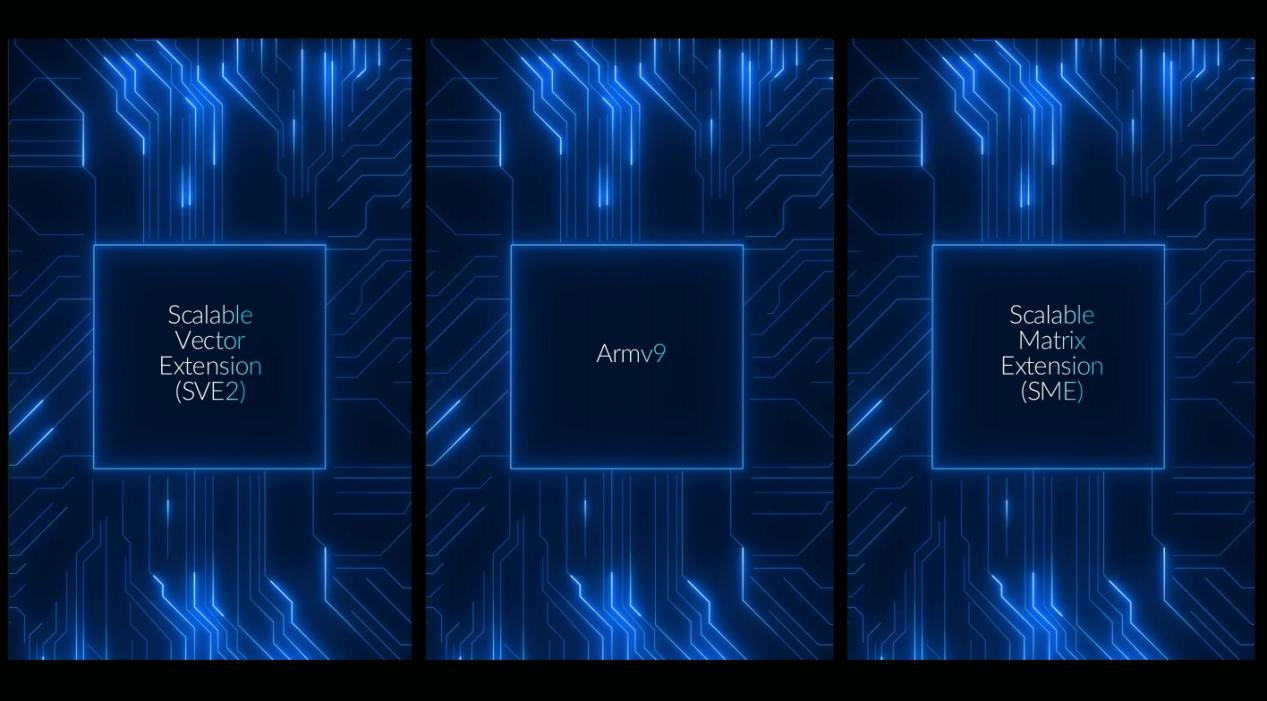
Source: arm
Moreover, many partners hope to customize their software solutions more easily, so Arm has been conducting deeper explorations in solutions, launching the Kleidi software library, not only helping developers seamlessly achieve optimal performance on Arm CPUs but also providing diverse customization support for developers.
Besides broader solution support, Arm has maintained deep collaboration with leading global semiconductor fabs like Samsung and TSMC to ensure that Arm products can be adapted to the latest processes as quickly as possible, providing design references for users. James McNiven believes that process technology will become more crucial in the AI era because AI places unprecedented demands on memory, power consumption, and performance, and only the most advanced processes can meet chip design requirements.
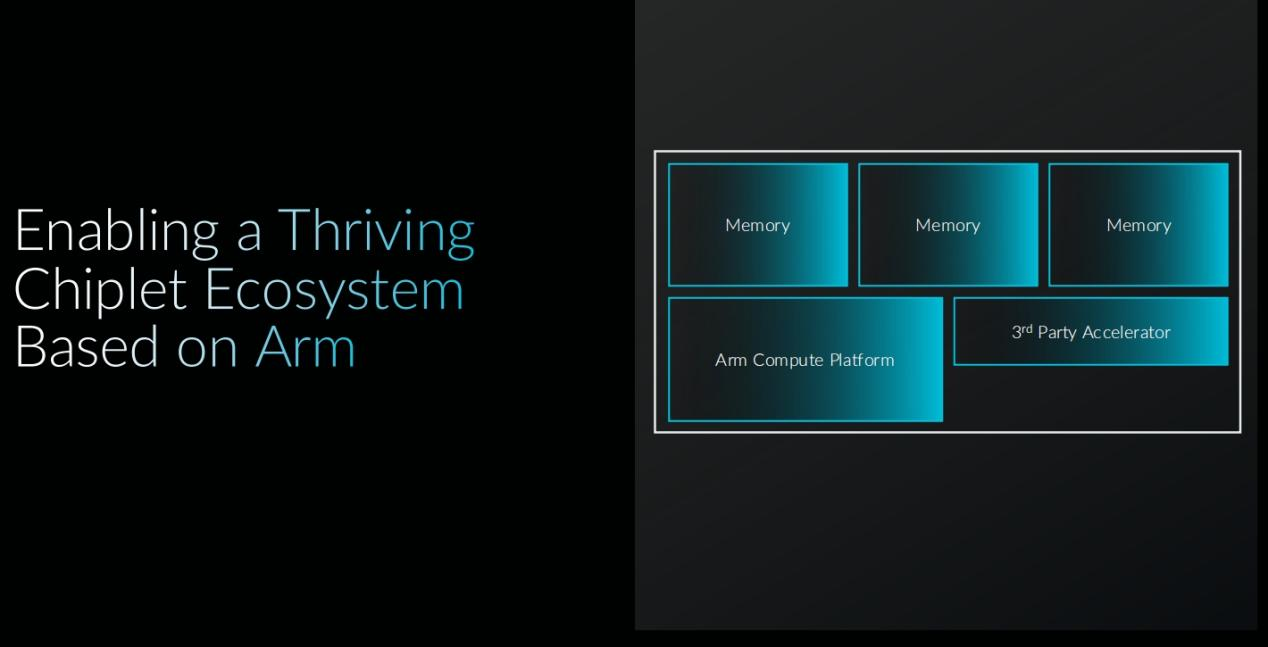
Source: arm
In Leitech's view, to meet the high-efficiency performance required for AI popularization, optimization is necessary in every direction, including hardware and software. AI is never a single hardware or system but a massive ecosystem requiring collaboration from all parties. Ensuring high efficiency in every link of this chain is crucial to minimizing AI usage costs, which is why James McNiven emphasizes energy efficiency, ecosystem, and vendor collaboration during the conference.
Subsequently, Leitech asked James McNiven, "Amid the rapid development of generative AI, does Arm plan to reposition itself in the smartphone and PC markets? Will it deepen collaboration with terminal vendors and optimize hardware products?"
James McNiven said that under the demand for generative AI, Arm is collaborating more closely with partners, including more terminal vendors like the previously mentioned vivo. Through collaboration with terminal vendors, Arm can better listen to user feedback, understand which features smartphone users are most interested in, and what opinions and suggestions they have about current features, thereby optimizing for these market demands.
Arm hopes to establish connections with more vendors to understand real user needs in the AI era, ensuring future technology development continues to meet market demands. Arm will continue to significantly enhance the performance of computing platform solutions, especially AI performance in products like CPUs and GPUs, and continue to strengthen the overall energy efficiency and performance of Arm Terminal CSS, which is currently the feedback from vendors. With increasing collaboration, Arm can maintain better market competitiveness.
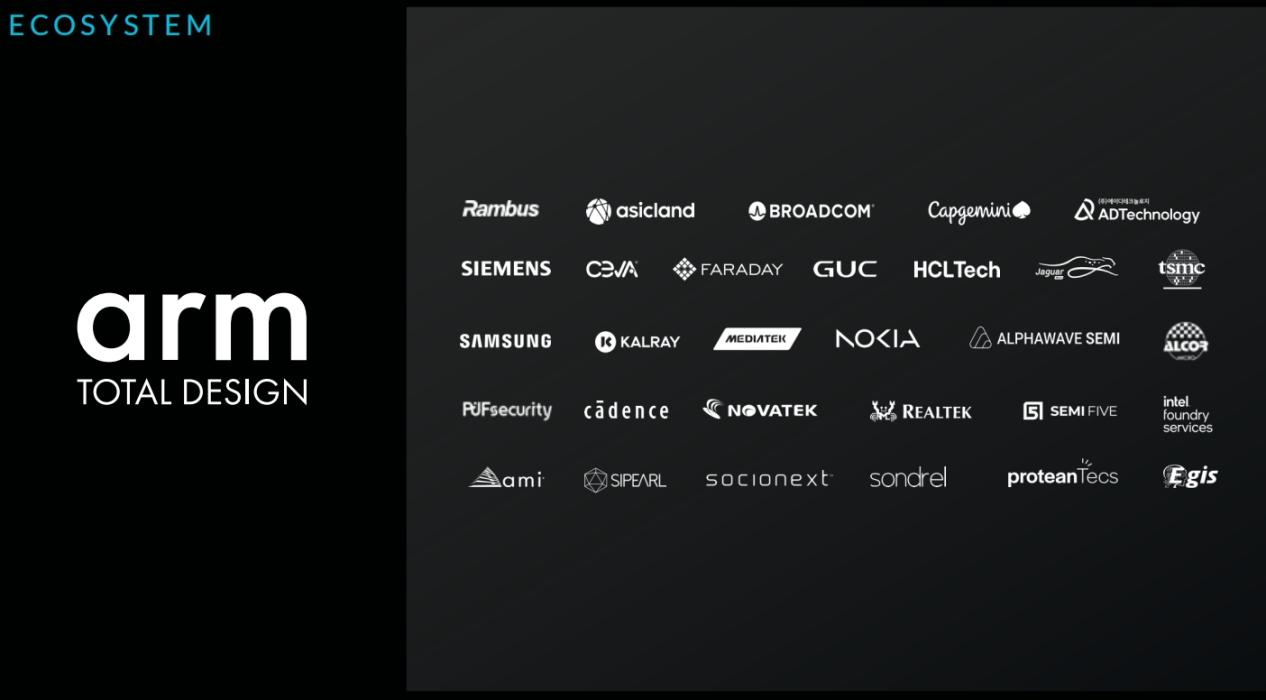
Source: arm
James McNiven was impressed by Leitech's coverage of the previous Arm Terminal Technology Media Briefing and expressed hope for continued discussions on the latest technological advancements at next year's technology briefing.
At the end of the briefing, James McNiven reiterated that as time passes, AI will become the core of future smart devices, from personal terminals to data centers. Arm hopes to serve as the cornerstone for software operation in the AI era, benefiting everyone from technological advancements.
In the mobile chip era, Arm was known as the leader in the chip industry, earning the reputation of the 'king of mobile chips.' In recent years, Arm has been penetrating into scenarios like PCs, servers, and automobiles, sparking the booming trend of Windows on ARM. Leitech believes that Arm's efforts to drive AI are making the trend of AI on ARM increasingly apparent.
As a new media organization focusing on global AI hard technology, Leitech continuously monitors the ARM ecosystem, as well as new trends like Windows on ARM, AI on ARM, AI PCs, AI phones, and AI hardware. CES 2025 (International Consumer Electronics Show) opens soon, and the Leitech reporting team is already assembled. We will fly to Las Vegas, USA, to cover the latest developments in AI hard technology, including the latest trends in Windows on ARM and AI on ARM. Stay tuned.
Source: Leitech







